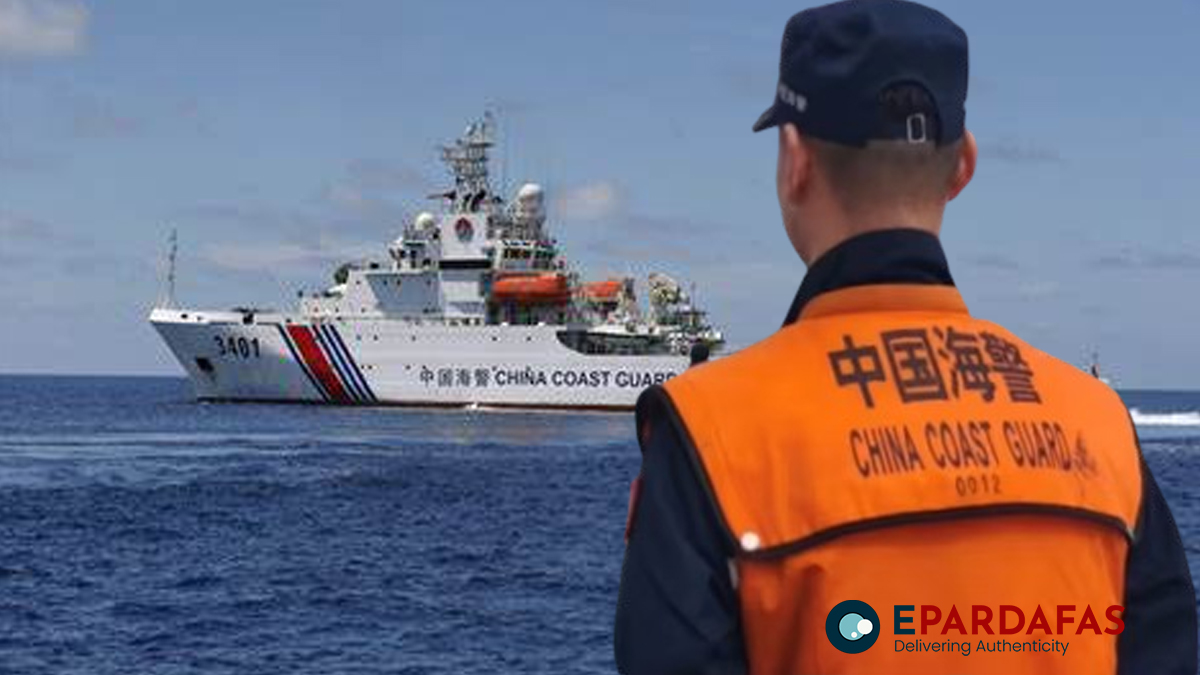
Why Appeasing China Will Never Work: Insights from the Philippines and the Rise of U.S.-Japan-Philippine Cooperation
In the vast expanse of the South China Sea, a high-stakes drama unfolds as tensions between China and the Philippines reach alarming levels. Manila’s accusations of Chinese vessels harassing Philippine boats, employing tactics like water cannons and deliberate collisions, underscore a volatile standoff with far-reaching implications.
The implications are not confined to the Philippines alone; the South China Sea serves as a vital artery for global trade, facilitating the passage of essential fuels and goods. Any disruption to this maritime thoroughfare could send shockwaves through the global economy.
As Manila grapples with China’s assertive posturing, lessons from its bitter experience could provide crucial insights into Beijing’s coercive tactics. These insights will find resonance in the inaugural U.S.-Japan-Philippine trilateral summit slated for early April.
The escalation in tensions traces back to the latter half of 2023, marked by incidents such as a Philippine boat being targeted with water cannons by a China Coast Guard vessel near Second Thomas Shoal in August. The collision between a Chinese maritime militia ship and a Philippine Coast Guard vessel in late October further fueled the flames of discord.
While some may attribute the escalation to Philippine President Ferdinand Marcos Jr.’s shift from his predecessor Rodrigo Duterte’s conciliatory approach towards China, a closer examination reveals a more nuanced reality. Under Duterte’s tenure, China’s encroachment into disputed waters was a recurrent phenomenon, albeit underreported to avoid antagonizing Beijing.
“The Marcos administration has opted to publicize China’s aggressive actions to highlight the existing threat,” remarked Philippine Coast Guard spokesperson Commodore Jay Tristan Tarriela, shedding light on the underlying dynamics.
Marcos’s recalibration of policy, epitomized by his engagements with the U.S. and Japan, underscores a paradigm shift recognizing the futility of appeasing China. The expansion of U.S. military presence in the Philippines, coupled with burgeoning security cooperation with Japan and Australia, reflects a strategic realignment towards like-minded allies.
The Philippines’ saga resonates beyond its shores, offering a sobering lesson: concessions to China on sovereignty issues yield no dividends. China’s assertiveness in the South China Sea extends to Malaysia and Vietnam, hinting at a broader regional challenge.
Japan’s history with China provides a cautionary tale. Former Prime Minister Yukio Hatoyama’s conciliatory stance towards China in 2009 failed to temper Beijing’s hostility. Instead, it precipitated a diplomatic row, underscoring the futility of appeasement without credible deterrence.
In navigating an uncertain geopolitical landscape, Asian nations recognize the imperative of bolstering security ties. The recent Manila conference, discussing security and economic cooperation among the Philippines, India, and Japan, underscores the growing momentum towards strategic collaboration.
Dialogue alone cannot ensure a stable coexistence with China; concerted efforts to maintain maritime equilibrium are indispensable. As the specter of U.S. retrenchment looms, Asian nations must forge robust partnerships to safeguard regional security and prosperity. The balance of maritime power hinges on proactive cooperation among like-minded nations, ensuring that the South China Sea remains a conduit for peace and prosperity, not discord and disruption.















#ChEXIT!!🙅🏼♂️